Protein deficiency edema
definition
Edema is a pathological accumulation of fluid in the tissue.
Most of the time, the fluid escapes from the vascular system and collects in the space between the tissue, between the cells (interstitium). In addition to a circulatory disorder, the cause of edema formation is also a protein deficiency. One then speaks of protein deficiency edema. These arise due to the fact that the oncotic pressure in the capillaries is too low. Due to the lack of protein, not enough pressure can be built up to hold the fluid in the vascular system.

causes
A protein deficiency in the blood can lead to the formation of protein deficiency edema.
Fluid then collects outside of the blood vessel system in the interstitial space (cell space). If the protein content in the blood serum falls below 5 g / dl, there is a high risk of developing protein deficiency edema. The causes of a protein deficiency in the blood (hypoproteinemia) can be numerous. On the one hand, a low protein intake in the diet is responsible for this.
This is usually not a problem in the western world. In Africa, however, many, especially children, suffer from protein deficiency edema, also known as hunger edema. Protein deficiency also occurs in certain diseases. If the pancreas is weak (pancreatic insufficiency), the large protein molecules in the intestine cannot be completely split and so cannot be absorbed through the mucous membrane. Even if the liver does not have the ability to synthesize it (due to liver cirrhosis), protein deficiency can occur, since new protein molecules are normally formed there from the amino acids that are ingested with food. In Europe, protein deficiency edema in the context of a tumor disease (due to increased protein consumption) is a common cause. This also applies to increased protein loss through the kidneys (nephrotic syndrome).
Read more about this at: Nephrotic Syndrome
What are the symptoms of protein deficiency edema?
Edema is a pathological accumulation of fluid in the tissue. In principle, these can occur anywhere in the body. But mostly in one of the upper layers of the skin, because this is where the capillaries lose fluid. This edema is then perceived externally as a swelling. Another indication of a protein deficiency is weight loss. This is mostly caused by the reduction in muscle mass. The muscles are broken down in order to slightly increase the protein content in the blood. Due to the lack of muscles, the affected person often feels weak and less productive.
Wound healing is significantly delayed, as protein is also required to build up new tissue. The immune system is also weak. Frequent infections are the result. Further signs are dark circles and protruding bones (e.g. on the face). Hair loss and brittle nails can also be an indication of a protein deficiency. Overall, there are numerous symptoms that can be thought of as a protein deficiency.
Read more on the topic: Causes of Edema
Symptoms on the abdomen
Hunger edema in particular shows up with water accumulation in the abdominal area. The cause of hunger edema is a lack of protein. Normally, the body needs an adequate supply of protein through food in order to maintain the protein content in the blood. Starvation leads to a severe protein deficiency. This reduces the oncotic pressure in the blood vessel system and water collects in the intercellular space. In the case of hunger edema, this is also the case in the legs, but above all in the stomach.
Also read the article on the topic: Water in the stomach
diagnosis
The suspicion of protein deficiency edema can already be made with a medical history and a short physical examination.
The doctor asks about previous illnesses that indicate a protein deficiency or increased protein loss. Then the physical exam follows. Edema is often a visual diagnosis. Even the layperson often perceives the accumulation of water in the tissue. This is then followed by a blood test. The total protein content in the blood is measured. Urine can also be examined to determine whether there is protein excretion in the urine.
You might also be interested in this topic: Lymphedema of the legs
Course of disease
The course of protein deficiency edema also depends on its cause.
If the cause of the protein deficiency is not corrected in the long term, the symptoms worsen.In addition to protein deficiency edema, there is also a rapid loss of muscle mass. In order to keep the protein content in the blood more or less constant, the body breaks down muscles. The longer the protein deficiency edema persists, the higher the risk of complications. The course of the disease can usually be stopped by supplying protein (via food or as an infusion).
Therapy of protein deficiency edema
Protein deficiency edema can be treated if you manage to eliminate the cause of the edema - the protein deficiency.
In the case of hunger edema (reduced protein intake in food), one should gradually increase the protein intake in order not to cause refeeding syndrome. This clinical picture can arise if patients are suddenly given normal amounts of food after a long period of malnutrition.
If the pancreas is weak, the digestive enzymes can be given in tablet form. This then leads to better protein breakdown in the intestine. Patients with end-stage liver disease are usually given infusions of protein. Because a sufficient body's own protein production is no longer possible. Tumor patients can also be given an extra portion of protein via the vein (as an infusion). Especially if they suffer from ascites due to the lack of protein. If the protein deficiency edema occurs as a result of protein loss in the kidney, you must try to treat the kidney disease in order to prevent further protein loss.
You might also be interested in this topic: Parenteral nutrition
forecast
The prognosis for protein deficiency edema varies greatly. Protein deficiency edema is mostly a symptom that can occur in various diseases. The prognosis then depends on the prognosis of the disease. Hunger edema can usually be treated very well if you pay attention to a gradual increase in protein intake. Protein deficiency edema as part of a weak pancreas can be treated with medication and has a good prognosis.
Serious liver and kidney diseases that lead to protein deficiency edema can usually only be treated poorly. The prognosis for the edema is correspondingly poor. This also applies to protein deficiency edema in tumor patients. It must be said, however, that (intravenous) administration of protein can often reduce the edema, at least temporarily, regardless of the underlying disease.
Secondary diseases
The consequences of a protein deficiency are serious. They can extend to life-threatening diseases.
The body therefore tries everything to counteract an impending protein deficiency. Edema caused by a protein deficiency is therefore a sequela of protein deficiency, which normally only occurs when there is a pronounced protein deficiency. Before that, the body tries to reduce muscle mass. If the protein deficiency is not compensated for, it leads to underweight. This can lead to death.
You might also be interested in this topic:
- Osteoporosis in underweight
- Malnutrition


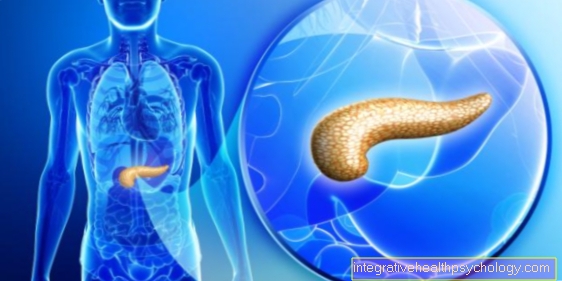
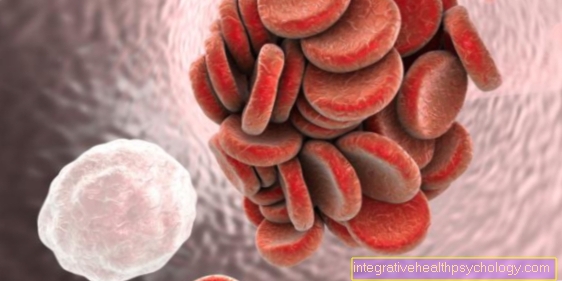
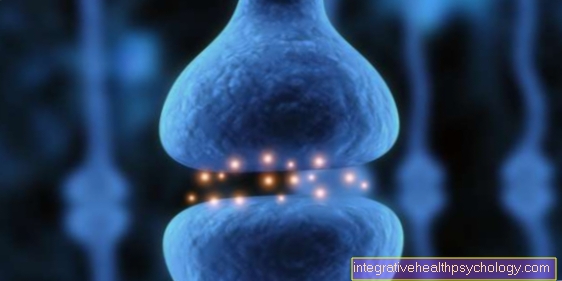


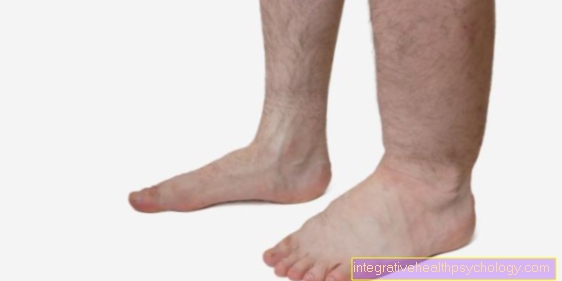


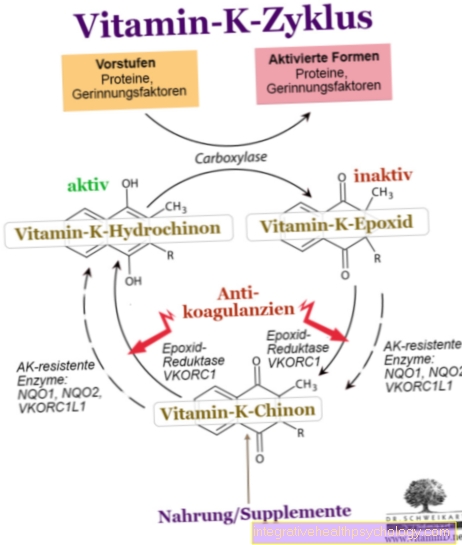
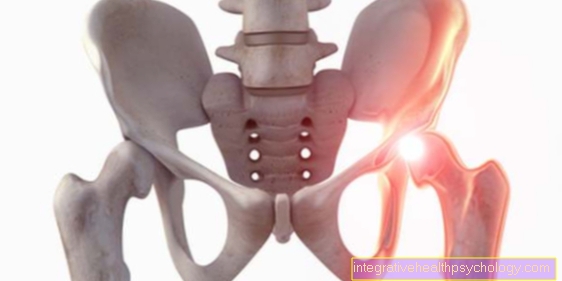





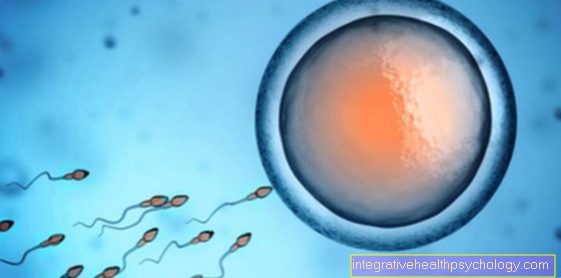
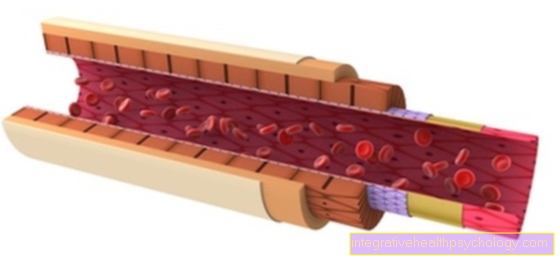








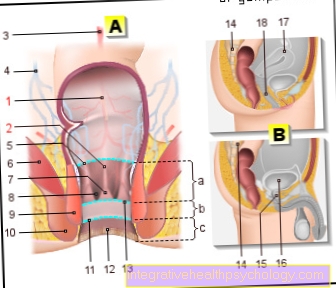

.jpg)